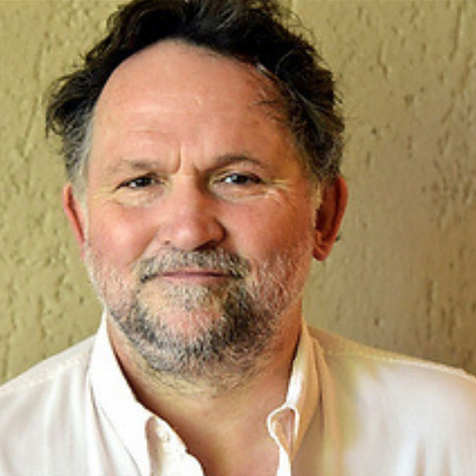Young people, mental health and embracing individuality
with Dick Moore
My journey as a mental health advocate began from a place of profound personal loss. I’m Dick Moore, a former headmaster, father of four, and now a passionate mental health campaigner.
In 2011, my world changed forever when my son, Barney, tragically took his own life. In the depths of grief, I found myself asking, “What’s the point of carrying on?” But instead of giving up, I chose a different path: to understand what I might have missed and what I could have done differently. I enrolled in a mental health first aid course, became a qualified instructor, and eventually joined The Charlie Waller Trust as a speaker.
It has been over twelve years since I started, and I now travel the world raising awareness about mental health in young people and the support systems available to them. I’ve spoken in over 500 schools and businesses and delivered a TED Talk about the signs and symptoms of common mental health disorders and about the need for education to adapt accordingly.

In 2023, research from the NHS found that 1 in 5 children and young people in England aged between 8 to 25 had a probable mental health disorder.1 The same report noted that prevalence of mental health issues among young people had stayed stable from 2022 to 2023, but there has been a notable jump prior to that between 2017 and 2020.1
What difficulties do young people face today?
I believe we are all affected and shaped by our circumstances. For young people today, growing up in a digital world comes with new pressures, such as navigating social media, dealing with peer influence, and more. These pressures often follow them through school into adulthood, where many feel they lose their safety nets.
Some young people may feel pressured to know exactly who they are, choose a specific career path, or conform to certain expectations about their sexuality or gender identity. These pressures are amplified in schools and universities, where they may face expectations from peers, and online, where they might feel the need to ‘fit in’.
Young people need to be supported through growing up and discovering themselves free from these external expectations, and it’s now more important than ever to provide safe, comfortable environments for them to do that.
How can you tell if a young person is struggling?
As a parent, it might be difficult to realise when your child is struggling, especially if they aren’t comfortable opening up about their problems.
It’s important to remember that there is no definitive way in which someone who is experiencing mental health problems might act. However, some common warning signs of mental health issues include:
- Ongoing low mood or lack of motivation2
- Not enjoying things they used to like doing2
- Becoming withdrawn and spending less time with friends and family2
- Experiencing low self-esteem or feeling like they are ‘worthless’2
- Feeling tearful or upset regularly2
- Changes in eating or sleeping routines2
Whilst these signs could be indicative of a mental health problem, there may be different explanations for these behaviours. Don’t make any assumptions, but equally don’t wait for them to start a conversation.
What does help look like?
A lot of people ask where they can get help for their loved one, which can be the most difficult step. I encourage people to look online for resources in the first instance – for example, Papyrus, a charity that aims to prevent young suicide, has a HopeLine available 24/7.
Getting help can look different for everyone – there are several resources listed on this website here, so do make use of these.
Remember, if you or your loved one needs help, don’t hesitate to reach out to a healthcare professional.
‘Life is not about waiting for the storm to pass; it is about learning to dance in the rain’ – Vivian Greene
In summary
‘Life is not about waiting for the storm to pass; it is about learning to dance in the rain’ – Vivian Greene. This is one of my favourite quotes, and now I see life in three different spectrums: sometimes fun, sometimes normal, and sometimes stormy. In my work, I try to suggest to employers, parents and young people some tools to help navigate the ups and downs of life, so when it is stormy, they have the coping mechanisms to help them thrive again.
You can hear more from Dick on Series 2 of the Mind if I Join You? podcast and read more about his work on his website.
This article has been developed and funded by Lundbeck and is intended for UK audiences.
References
- NHS Digital. Mental Health of Children and Young People in England, 2023 - wave 4 follow up to the 2017 survey. Available at: https://digital.nhs.uk/data-and-information/publications/statistical/mental-health-of-children-and-young-people-in-england/2023-wave-4-follow-up [last accessed October 2024]
- NSPCC Learning. Child mental health: Recognising. Available at: https://www.nspcc.org.uk/keeping-children-safe/childrens-mental-health/depression-anxiety-mental-health/ [last accessed October 2024]